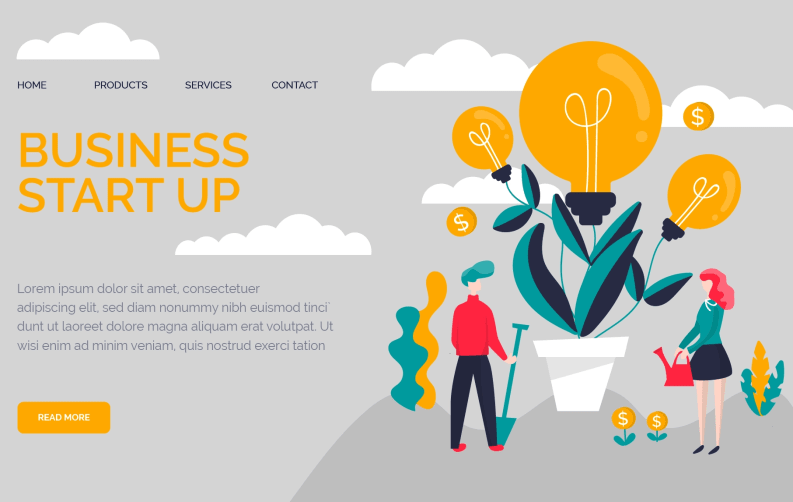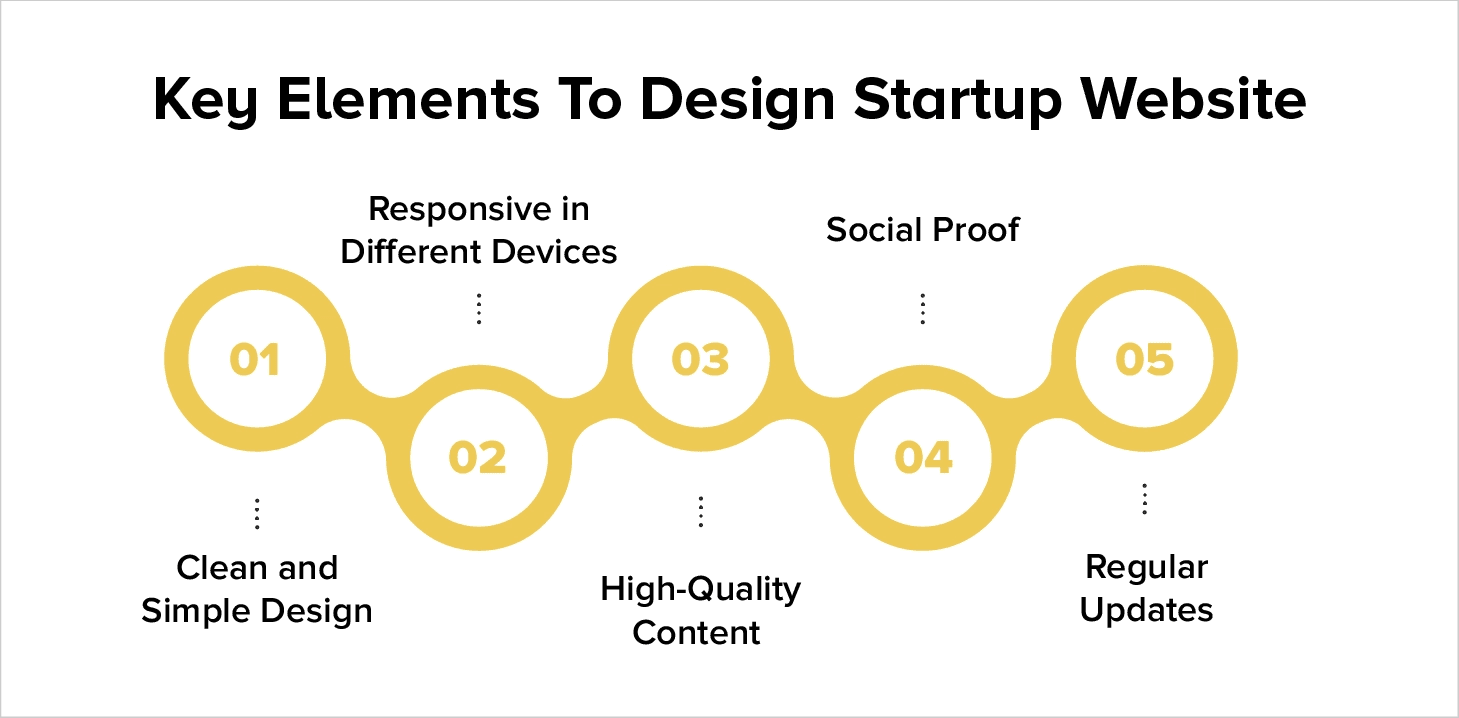
Your path-breaking startup idea has finally been established. But you are struggling to promote it. What is the first thing you should do?
Create an engaging startup’s website!
Let it tell a compelling story that hooks your audience. With a thoughtful content strategy and intuitive user experience, your website will attract traffic.
Here, we have curated a list of startup websites that have made their mark in the website category.
Why Does a Startup’s Website Need to Be Good?

New startups need to make a good first impression to keep them in people's minds. An effective startup’s website serves multiple crucial purposes: it establishes credibility, builds brand awareness, converts visitors into leads and customers, and helps raise funding.
According to worldwide traffic, notion.so was the most well-liked startup website in both Europe and the United States in 2022. In the year under review, the workplace platform debuted in 2013 and averaged over 141.8 million monthly website views.
Let us take a closer look at them in detail.
1. Building Credibility
A professionally designed, fast-loading website with the right elements will help people better understand the company. The website should include essentials like:
- An About Section
- Services/Product Section
- Contact Information
2. Branding
Your website visuals, copy, logo, images, and messaging build your unique brand identity. This allows the startup to stand out even if you are trying to create a lifestyle or tech startup website. Consistent branding also builds recognition and loyalty.
Website design for startups is crucial as it is the first place for branding and can help build brand awareness. People would associate the startup with a company logo or packaging.
3. Lead Generation
Quality website copy focused on solving pain points with clear calls-to-action helps capture visitor information through email signups, contact forms, etc. This allows you to build an audience base and convert them to customers.
4. Sales/Conversion
Compelling product and service pages with demos, pricing, and easy checkouts enable startups to sell directly on their site. This generates revenue early on in the business.
5. Fundraising
Investors will thoroughly evaluate your website when considering investing in your startup.
Showcase the company’s mission, vision, and USPs (unique selling points) through your website. A subpar site raises red flags, while an excellent site builds confidence.
Key Elements to Design a Basic Website for Startups

Creating an engaging website does not have to be complicated. It is a good idea to test some startup website templates to have an initial idea. Startups should remember some key elements when creating a basic website for a startup business.
1. Clean and Simple Design
Avoid cluttered, distracting designs. Go for a clean, minimalist look with ample white space. This keeps the focus on your content and products/services. Use a basic grid layout with clean lines and easy navigation.
2. Responsive in Different Devices
Make the startup website designs optimized for different devices. With maximum traffic from mobile users, use a mobile-first approach to ensure a seamless experience.
3. High-Quality Content
Share your startup’s story, mission, and team background. This will establish what makes you unique to establish credibility and connect with visitors. Include photos and bios of founders and team members. Plus, you can focus on innovative marketing techniques for startups.
Also, the general content that is posted should be valuable and informative. Visitors should gain some knowledge and have their doubts cleared when leaving the website.
4. Social Proof
Social proof, such as testimonials, case studies, or client lists, can help build trust with potential customers. By showing that people have had positive experiences with your startup, you can encourage others to engage with you.
5. Regular Updates
Keeping your website updated shows that your startup is active and engaged. This could involve regularly posting blog articles, updating product descriptions, or adding news about your startup.
The news could be about how the office team spent a special day. Share BTS (behind the scenes) videos of preparing your office for an event.
Top 10 Inspiring Websites for Startups
The first step to help businesses get the idea is to look at some startup website examples. Here, we have curated a list of 10 startup websites that have grabbed people's attention due to their designs and user-friendly features.
1. Appinventiv
This mobile app and website (Appinventiv) startup development company was founded in 2015. Since then, it has delivered over 1000 successful projects for corporate giants and startups and has become one of the best web development companies. Their services include iOS and Android app development, software development, blockchain development, and cloud services.
Their vibrant startup business website uses bold graphics, abstract shapes, and animated elements to showcase their services in an eye-catching way vividly. The combination of white and blue with ample empty spaces for a minimalist look has worked out for them.
The clean layout helps customers navigate freely and not get lost. The case studies and testimonials also prove their credibility.
2. Loom
Loom existed in 2015 in San Francisco, California. The startup was spearheaded by Vinay Hiremath, Shahed Khan, and Joe Thomas. It is a free video messaging platform that makes recording and sharing short videos for work easy.
The startup company website is praised for its user-friendly interface and the speed at which users can record and share information. More than 25 million people worldwide use this platform to record videos seamlessly. The website’s success is driven by its simplicity and efficiency in conveying information.
3. Kohost
Kohost is a digital ecosystem solution for the hospitality industry. It allows hotel guests to connect to their rooms and provides API technology for in-room services.
Launched in 2017, the startup company website of Kohost uses animations to attract people. They give detailed descriptions and animations, making obtaining information fun.
4. Hubspot
Hubspot was launched in 2006 in Cambridge, United States. The company is an inbound marketing software platform that combines marketing, sales, and CMS tools.
The startup website’s homepage packs information about its CRM platform and various products for marketing, sales, customer service, content management, operations, and commerce.
All this information, and they never break their solid combination of bright orange and white! It makes the startup’s website vibrant and packed with solutions.
5. Apothékary
Apothékary is a global plant-based pharmacy that offers clean alternatives to over-the-counter synthetic supplements and beauty products. Founded in 2018 by former Wall Street employee Shizu Okusa, Apothékary now successfully sells powdered herbs and tinctures.
It is intended that consumers will use them daily by dissolving them into a preferred liquid. Their website stands out because it focuses on natural, sustainable, and ethically sourced products.
The user-friendly interface and complimentary consultations with licensed wellness professionals make it stand out.
6. MikMak
Launched in 2014, MikMak is a shoppable video platform integrating e-commerce into video content. Their homepage features a bold video background to demonstrate these features. Their contemporary, upscale design fits their tech-forward brand mission.
The website explains its robust functionality to the target user - e-commerce managers and marketers. The site goes above and beyond to ensure potential customers can access detailed information.
7. LinkTree
Established in 2016, this Australian startup was started by Alex and Anthony Zaccaria and their business partner, Nick Humphreys. They understood the pain of managing various social media links and launched Linktree overnight to bring singular links under one umbrella.
Their website, at first glance, clearly speaks what they do. You can create your singular LinkTree link without scrolling further and getting lost. Their website is vibrant and uses lots of animation to engage visitors. Plus, they have several blogs on social media marketing strategies.
8. Canva
Canva is a graphic designing software that helps users design several pages, such as:
- Presentations
- Wedding cards
- Social media banners
- Logos
- Websites
The platform is designed as a drag-and-drop with fonts, design elements, and illustrations. The latest addition is their AI image creator, which can conjure images based on a prompt. Their homepage is clean and uncluttered, with clear CTAs encouraging users to try on different templates. They keep on updating their website based on the latest AI trends.
9. Choco
Choco is an online B2B platform for restaurants. It lets restaurants and food businesses purchase grocery products in bulk quantities directly from producers and distributors.
Choco’s vibrant website highlights what industries they work with. They establish credibility with an ongoing video about their organization at the start. Clear CTAs later in the page help visitors know more about each section.
10. Wardrobe Apparel
Wardrobe Apparel is an app-based online P2P rental marketplace that serves as a business startup website for women’s apparel and accessories. The product catalog includes dresses, tops, bottoms, and shoes.
Their ultra-minimalist site uses a striking black-and-white design. Fashion visuals are used sparingly throughout for impact. Their About page effectively explains their eco-friendly practices.
Final Thoughts
Building an effective website for startup companies is the stepping stone for your startup. With so much depending on online presence, invest time and effort into creating a captivating startup’s website.
Let your startup website ideas showcase your voice of authority, credibility, and expertise in your domain. The task is much easier when you follow and track website design trends.
Frequently Asked Questions
-
How can an FAQ page improve my startup’s website SEO?
-
How can I optimize my startup’s website for search engines?
-
What is the purpose of a startup?

Content Writer
Sakshi Kaushik is a wordsmith extraordinaire who transforms complex technical jargon into captivating, must-read articles. Armed with a Masters in Economics, Sakshi dissects intricate topics with the precision of a seasoned expert. Her insights have graced prestigious platforms like Hackernoon, Ecowiser, and Medium, captivating readers and tech aficionados alike. With a career spanning influential companies like Teleperformance, Finex, and SparxIT Solutions, Sakshi is well-versed in navigating both the keyboard and the boardroom.
In addition to her extensive experience, Sakshi holds HubSpot certifications in Digital Advertising and Content Marketing, and has earned further credentials from UpGrad, Coursera, and Great Learning. Dedicated to sharing her expertise with mobile app developers and tech enthusiasts, Sakshi's passion shines through her writing. When she's not crafting compelling content, she enjoys diving into thrilling novels and exploring diverse worlds.














